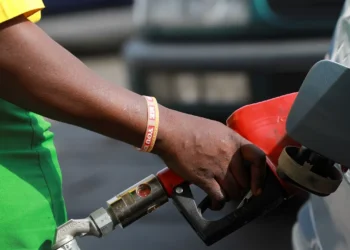In a move of significant economic consequence, the details of the distribution of the N3.8 trillion stamp duty fund between the federal government, states, and other entities have been unveiled. This development sheds light on how this substantial sum will be allocated among key stakeholders, particularly the states, which are set to receive a substantial share of the fund.
According to documents obtained, the total amount to be shared among the federal government and various government agencies stands at a substantial N3,860,867,322,987.42.
The breakdown of the distribution reveals that the states will be the primary beneficiaries, securing a lion’s share of the stamp duty funds. Specifically, the states will receive 73 percent of the N3.8 trillion, underscoring the significance of this windfall for state coffers. The federal government, meanwhile, is entitled to 14 percent of the fund.
The Federal Inland Revenue Service (FIRS) is allocated four percent, reflecting its role in the collection and administration of stamp duties. Coordinating consultants will receive a five percent share, provided as a one-time allocation from the N3.8 trillion fund.
Crucially, the federal government’s 14 percent share will be an ongoing entitlement whenever there is a distribution of the stamp duty fund.
This distribution scheme follows a legal dispute initiated by the Attorneys-General of the 36 states against the federal government in September 2021. The dispute centered on the federal government’s failure to remit funds generated from stamp duties into state accounts.
An out-of-court settlement was eventually reached between the governors and former President Muhammadu Buhari, with the former president committing to pay the unremitted funds, which amounted to trillions of naira.
The lawsuit, marked SC/CV/690/2021, had sought the Supreme Court’s intervention in determining whether states had the exclusive authority to administer and collect stamp duties on transactions within their respective jurisdictions. It also questioned the federal government’s claim to, retain, distribute, or otherwise handle these stamp duty revenues without the involvement of the states.
In light of the nation’s challenging economic conditions, which have prompted states to rely on federal government palliatives to offset the impact of petrol subsidy removal, the governors are now pressing President Bola Tinubu to expedite the payment of the stamp duty funds.
Sources indicate that the trillions of naira involved are substantial, and the delay in payment is merely procedural. The governors have collectively affirmed that the issue will be raised at their upcoming meeting, especially in the context of subsidy palliatives and the economic challenges faced by citizens.
The states remain concerned that the proceeds from stamp duty have been retained by the Central Bank of Nigeria (CBN) and the federal government, rather than being disbursed to address the pressing needs of the states’ residents. This issue is expected to take center stage at the governors’ next meeting, reflecting the critical economic importance of the stamp duty funds.











